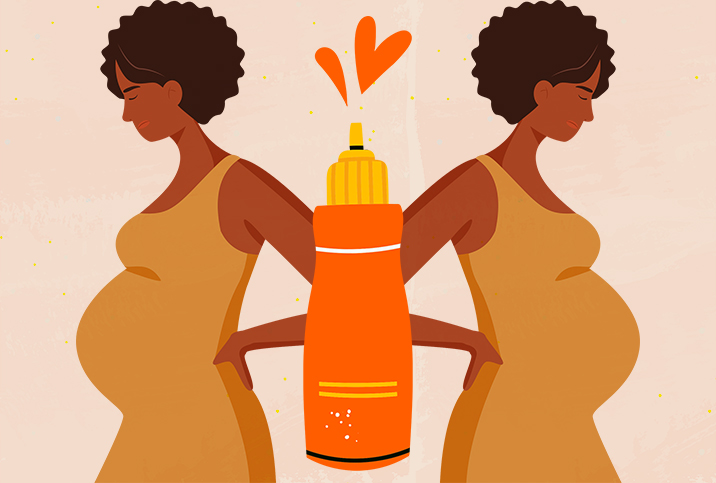Hormones & Happiness: Better Health Through Pleasure

In order to regulate bodily functions such as digestion, the brain relies on essential hormones and neurotransmitters. Such functions of the human body are also responsible for how we perceive a range of sensory and emotional experiences.
Certain hormones and neurotransmitters are specifically responsible for feelings like happiness and pleasure—in other words, the emotions most commonly associated with love, sex and intimacy.
The happy hormones
Take a look at the hormones often associated with pleasure, along with the specific functions they each regulate and maintain:
- Oxytocin regulates a sense of bonding, trust and affection. It can also help with stress management.
- Serotonin facilitates a sense of well-being and happiness, and it works to stabilize mood changes.
- Dopamine functions as a motivation mechanism in the brain’s reward system, regulating decision-making and impulse control.
- Endorphins, often associated with a “runner’s high,” bind to opioid receptors to inhibit the transmission of pain signals and thus produce a euphoric experience.
Lifestyle choices
Lifestyle choices that correspond to healthy living are likely to boost your levels of these happy hormones.
Endorphins are released in large amounts after extended cardiovascular exercise and other physical activities. Oxytocin levels, on the other hand, can be increased by acts of close physical intimacy, like kissing, cuddling or healthy sex. And a good diet can help increase the levels of all your happy hormones. Even laughter can stimulate oxytocin and endorphin production.
Of course, healthy lifestyles look different for different people, and that’s something you have to determine for yourself. If you have a lover or a partner, encourage them to find interests and activities you can do together that will encourage happy hormone production.
Date ideas
Many foods that are promoted as having general health benefits (many of which still need much research to corroborate), such as dark chocolate, spicy peppers and others, also have a certain mystique, including romantic associations and tales of aphrodisiac qualities.
Oysters, almonds, figs, watermelon and strawberries are also popular foods with a reputation for encouraging arousal. Though these ingredients might not guarantee a deal-closing love potion, curating a homemade meal or a night out involving these foods could help communicate your interest to the person you most desire.
Research shows that active, hearty laughter with another person we feel close to can result in a release of endorphins. This is another indication that communication works wonders for relationship dynamics. Quality communication comes in all forms, including deep conversation, intimate nonverbal communication or simple, robust laughter over a shared experience such as a joke or funny occurrence.
And let’s not forget sex
Having consistently good sex can help your brain regulate hormone levels just like any other physical or sensory practice. The difference is that with sex, you have the implied opportunity to also practice expressions of deep physical intimacy, emotionally bonding communication and other activities that can contribute to a concoction of myriad hormonal reactions.
Not only does healthy sexual exploration potentially help regulate hormone production, but it can also introduce a person to a variety of new and different pleasurable experiences and help them gauge what they enjoy and what they don’t. Different explorations of sex can take a person along a spectrum of emotions they might not have experienced before.
Sex can be exhilarating or relaxing, and it can allow an opportunity for tapping into primal or cerebral places in the mind. It’s always a good idea to remember that the brain, despite not commonly considered a sex organ, plays a pivotal role in the enjoyability of sex.
Dip your toes
You don’t have to be an expert on the human body or how the brain works to understand that hormones play an important role within the human experience. However, you may practice a healthy lifestyle but still have a problem with hormone production. You should know, though, that hormone deficiency is a normal condition. Many people take medication to treat mental health and other issues related to serotonin production or neurotransmitters. Modern science is producing all kinds of solutions to hormone deficiency.
If you’re seriously concerned about how you experience pleasure or the way you process emotions, you should make it a priority to see a certified medical professional who specializes in those areas of mental health. However, in the long term, it might be worth trying a natural hormonal boost by enjoying walks outside and getting some exercise, spending more time giggling and laughing out loud, maintaining a healthy diet, and planning to get a little lucky every now and then.














